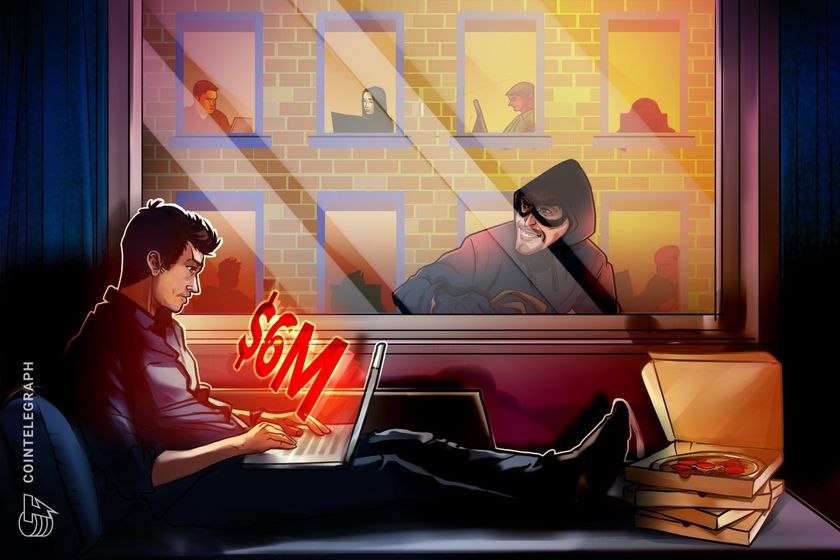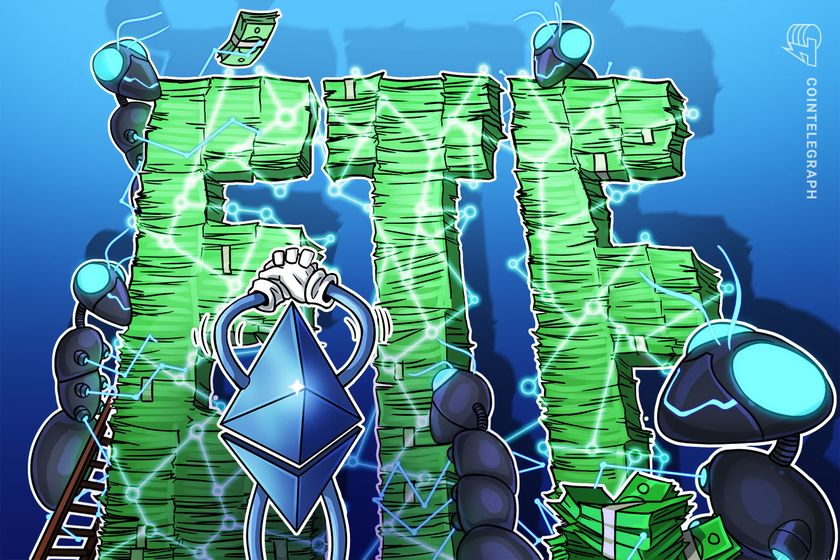Making the Metaverse the key to a better future instead of a dystopian prison

The digitization of humanity via AI and the metaverse is already inevitable, but will it lead us to a decentralized, better world or to a dystopian nightmare?
Will the Metaverse(s) change humanity as we know it? Will the Metaverse(s) be the ultimate augmentation of human perception? Will it become an agora for our dreams (and, of course, nightmares), able to transform human perception entirely? Has it already started?
To start with the latter question: Yes, the groundwork has already been laid. Sensors from our smartphones, social media, digital devices, and the digital data-driven companies that top the Fortune 500 comprise the new cathedrals, religions and tribal spaces for humanity. These technologies and the onset of the so-called Fourth Industrial Revolution, or 4IR, and the AI-driven Society 5.0 have seen more change in humanity in the last 50 years than in the previous 30,000 combined. And this is just the beginning!

In 1974, in a thought experiment, philosopher Robert Nozick visualized a hypothetical machine capable of providing every pleasure and experience imaginable. Nozick asked a provocative question: If given a choice, would we choose the machine over reality? Nozick concluded that we probably wouldn’t choose the machine, arguing it is better to experience the highs and lows of this physical world than to experience the artificial, never-ending high of the simulated.
But a lot can change in 50 years. In 1990, 16 years after Nozick and a year after Tim Berners-Lee first conceptualized the World Wide Web, Steve Jobs famlously called the personal computer the “bicycle for the mind,” and we were off to the artificial races.
Recoding the human need for stories
What would we choose now if presented with a choice between the real, physical finite and the virtual, digital infinite powered by AI? The answer is that we have already chosen. We are all now digital magicians, scientists and subjects in the great ongoing virtual social experiment, interacting and stimulating each other’s brains and bodies with multiple experiences and feelings that are completely indistinguishable from experiences in the “real” physical world. This is happening across Facebook, TikTok, YouTube, rypto-empowering NFTs, Fortnite, Second Life, Decentraland and countless other online and social media platforms. The Metaverse (or metaverses) merely represent the ultimate augmented form of dreaming and the decision that has already been made. As our technologies develop so fast, we are indeed moving toward the digitization of humanity, thanks to AI and the invention of the metaverse — the future looks more like the one in Ernest Cline’s Ready Player One, where the digitized reality is enabling us to experience almost everything!
Related: Sci-fi or blockchain reality? The ‘Ready Player One’ OASIS can be built
While the Metaverse represents the culmination of the last 50 years of technology, it will also invite new and wholly unique ways of thinking and dreaming about humanity’s obsession with bigger and bigger stories. That will include new ways of interacting, communicating, and storytelling, marking a new chapter in our social-economic centralized and decentralized 4IR, Web3, Society 5.0 cultural history.
Stories have sustained human culture and civilization for several millennia. They teach us to speak, read, write, assimilate civil codes, create Magna Cartas and forge our identities. Through them, we learn about language and psychology, belonging, ownership and the sense of right and wrong. They define the narrative of our lives and our communities, and, by extension, of our circular socio-economic models, financial codes and ethics. Like the verses of Homer or Milton, the Metaverse of today will go down in history as a force that shaped the course of civilization, and an island in the archipelago of the complex human history of epics, comedies and tragedies together with inventions of fire, the wheel, computers, internet and now the Metaverse!
Related: The metaverse will bring a further erosion of privacy
Just as we have started implementing aspects of the “real world” in the Metaverse, from virtual landmarks to cities’ digital twins, we can also be sure that our experiences will bridge the real and the virtual in the Metaverse, which will reshape our narratives in the physical world, not unlike the way the internet and social media changed not just how we gather information, but also how we perceive that information and fit it into our personal narratives. However, the Metaverse additionally offers us a new chance to reshape those narratives, new ways of dreaming (and having nightmares), augmenting the possibilities and remediating the downsides of the internet’s current model.
AI dreaming or a dystopian Pandora Box?
The first movers in the Metaverse revolution are and will undoubtedly continue to be the ones that bridge physical and virtual experiences: from creating new cities and new properties, to travel and art, to general experiences, all of which continue expanding and augmenting our society with brand new social media and gaming experiences. At the moment, this is happening on platforms that have significantly large user bases, creator marketplaces, experiences with live digital events, and cutting-edge hardware, and it’s these platforms that are building the basis of this new medium. Web3, AI, blockchain and other decentralized technologies will provide a check on these companies and people behind these platforms that were not present in the earliest days of the internet, ensuring similar mistakes are not made as this foundation is being put in place.

We already began transitioning to the Metaverse some time ago via the various interactive experiences that create singular moments on digital, social, and gaming platforms that have been developed over the last 20 years. It is well known that these platforms have commodified the individual via collection of their data and the recording of their activities, exploiting their desires and frustrations both. To solve this problem, we need to create AI digital ethics and be conscious of the risks inherent in augmenting our perception of reality, and the fake narratives that could take root under such circumstances, and adopt self-sovereign identities (SSI), decentralized digital identities that allow for credentials to be presented and verified in digital interactions.
Related: Facebook’s centralized metaverse a threat to the decentralized ecosystem?
The new metaverses’ AI technology solutions allow us and any users to self-manage and augment our digital identities without depending on third-party providers to store and centrally manage data. But this can also can be radically disruptive if not managed well, and much more revolutionary than anything in the previous 30,000 years of humanity.
The use of blockchain technology and NFTs, along with AI tools, VR, and AR — even holograms like in Star Wars — are in their nascent development, but will be vital in scaling the vision of what metaverses are and can be, and we need to imagine and build them collectively, being conscious of their capacity to empower us if built ethically and securely, creating trust.
For a metaverse to succeed, we need to make sure that we are all conscious that this is happening now! It is part of all of our life’s present, not in the far-flung future! The Metaverse needs to be built by all of us, with conscience, seamless and trusted, where the citizen — each of us — uses these new tools, like the invention of fire before, to empower themself by owning and evolving with the new metaverse platforms and technologies, not being a slave to them.
Therefore, we must be conscious that we need to build and make the Metaverse, the AI platforms for the amplifications of humanity, their very best instead of a dystopian prison! Only in this way will we ensure that the present building of our Metaverse becomes the ultimate set of tools and platforms for helping us to dream bigger and unlock more powerful narratives, rather than trapping us in a prison built from within our own biggest fears and nightmares.
This article does not contain investment advice or recommendations. Every investment and trading move involves risk, and readers should conduct their own research when making a decision.
The views, thoughts and opinions expressed here are the author’s alone and do not necessarily reflect or represent the views and opinions of Cointelegraph.









